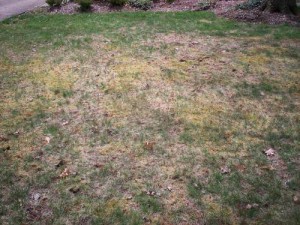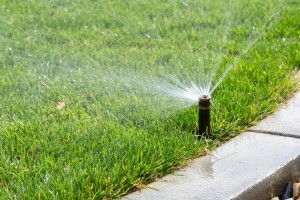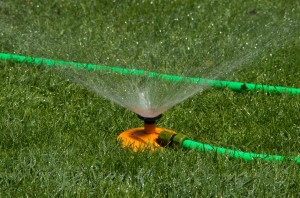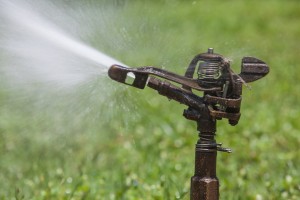What happens if I don’t water my lawn?
Depending where you travel in the country, you’ll get varying opinions and social norms about watering lawns. Down south, if you don’t water, you don’t have a lawn, you have dirt, sand, and weeds. It also seems that near larger urban areas, there are more people with irrigation installed, especially on smaller properties.
However, here in the Lancaster and Harrisburg, PA area, it’s actually pretty uncommon for people to have irrigation systems. This is particularly true when they have a larger lawn. But it isn’t because they aren’t needed. The common view of irrigation systems in our area is different for a number of factors.
 Misconceptions
Misconceptions
Cool season turfgrasses like Kentucky Bluegrass, Perennial Ryegrasses, and Tall Fescues can tolerate a period of drought in the summer. Grass blades turn brown as they lose available moisture. If the drought doesn’t last beyond 3-4 weeks, most of these areas can re-grow new, green blades when wet conditions return. However, if lawns don’t get 2″ of water weekly for 4 weeks consecutively, permanent damage can occur. Root systems can be damaged to the point where grass blades will not only stay brown, but will be thin or completely dead. Combine that with a turf disease problem or insect damage, and you will need to have lawn seeding in the fall, starting from scratch.
 People also have a misconception that they will need to water their lawn every day. This is not so. In fact, 2-3 deep watering sessions per week are much better than short watering each day. This will keep soil moist deeper, causing grass roots to grow deeper into the soil. If Spring brings abundant rainfall, irrigation won’t need to be used until sometime late in Spring or early Summer. Continue to run it throughout the Summer, and then turn it off in the Fall. The point is just to keep the lawn alive throughout the Summer.
People also have a misconception that they will need to water their lawn every day. This is not so. In fact, 2-3 deep watering sessions per week are much better than short watering each day. This will keep soil moist deeper, causing grass roots to grow deeper into the soil. If Spring brings abundant rainfall, irrigation won’t need to be used until sometime late in Spring or early Summer. Continue to run it throughout the Summer, and then turn it off in the Fall. The point is just to keep the lawn alive throughout the Summer.
Economics of Watering Lawns
It’s not all or nothing. If you have the money to have professional lawn sprinkler system installation go for it. But if you can’t afford this, there are other options that can make a big difference. Most home and garden stores will sell a variety of sprinklers. Each sprinkler has its own purpose for the space they are watering.
Likewise, you can purchase hose splitters and timers and set up temporary irrigation systems for your lawn. These can be set so that they divert water pressure to each area as a zone before it goes to another. It’s possible to set up a temporary system to water the front lawn one morning, then the back lawn the following morning. That’s a much better method than dragging hoses and sprinklers around. That leaves you feeling chained to your property all day throughout the week!
 We often tell people that are facing drought damage on their lawn, “You’re going to pay one way or another, either in your water bill, or for re-seeding in the fall.” The nice thing is that if you pay for the water bill, you won’t have a brand new lawn to start over with in the fall, that is going to need watered more anyway to keep it alive for its first year of life.
We often tell people that are facing drought damage on their lawn, “You’re going to pay one way or another, either in your water bill, or for re-seeding in the fall.” The nice thing is that if you pay for the water bill, you won’t have a brand new lawn to start over with in the fall, that is going to need watered more anyway to keep it alive for its first year of life.
If you’re considering having an irrigation company install professional sprinkler systems for either your lawn or landscaping, you don’t even have to install a system on your entire property, you could just keep the front lawn looking great for curb appeal. If you decide that watering your lawn isn’t a task you’d like to tackle and a professional irrigation system is right for you, we’d love to talk to you about designing and installing irrigation on your property.


